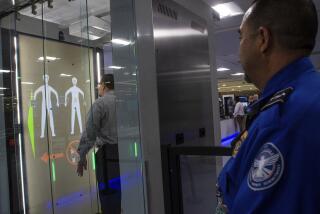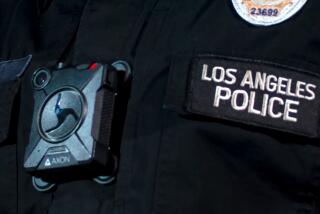JetBlue and Delta begin testing biometrics to identify passengers
One day in the near future, your face or your fingers will be all the identification you need to board a plane.
The airline industry has begun testing the idea of using biometrics â facial recognition, retinal scans and fingerprints â to identify fliers as a way to boost security and make life easier for travelers.
JetBlue Airways announced that it will begin to use facial recognition technology this month to verify the identity of passengers boarding flights between Bostonâs Logan International Airport and Queen Beatrix International Airport in Aruba.
Last week, Delta Air Lines began letting members of its loyalty reward program use their fingerprints as ID to enter the Delta Sky Club at the Ronald Reagan Washington National Airport. If the test program goes well, the Atlanta-based airline says it plans to use fingerprints to let passengers check a bag or board a flight.
This is not the first time biometrics has been tested in the airline industry.
In 2014, Seattle-based Alaska Airlines began to use fingerprint scans to screen fliers at the airlineâs six airport lounges, including one at Los Angeles International Airport. The following year, the airline launched a pilot program to use fingerprints to identify passengers who were boarding flights at Norman Y. Mineta San Jose International Airport.
Under the JetBlue program, customers step in front of a camera that matches their image with passport or visa photos in the U.S. Customs and Border Protection database. A screen above the camera will notify fliers when they are clear to board the plane.
Travel experts say such tests will help move the industry toward a time when fingerprints, facial recognition technology and other biometrics will replace boarding passes, passports and driverâs licenses as identification at airports.
âWeâre rapidly moving toward a day when your fingerprint, iris or face will become the only ID youâll need for any number of transactions throughout a given day,â Delta Chief Operating Officer Gil West said.
More to Read
Sign up for Essential California
The most important California stories and recommendations in your inbox every morning.
You may occasionally receive promotional content from the Los Angeles Times.











